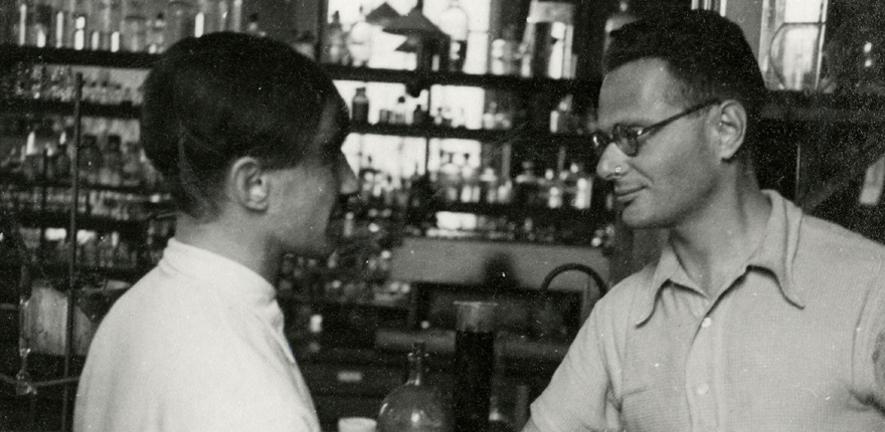
Although presiding over the development of his department, Hopkins' breadth of view extended far beyond science and he was acutely aware of the political events that were changing the world in the 1930s. This perception led him, in 1933, to establish the Academic Assistance Council (later the Society for Protection of Science and Learning) that found places for refugees from Germany. In 1932 Hans Krebs and Kurt Henseleit had published their papers on the urea cycle, with Hopkins describing this completely novel work to the Royal Society in that same year. At that time Krebs was working in the medical clinic of the University of Freiburg, Germany. Following the election of the National Socialists in 1933, Jews were forbidden to teach in universities or practice in university hospitals. In April 1933 Krebs was therefore placed on a leave of absence, and he was subsequently dismissed two months later. However, by early April, Hopkins had already written to Krebs offering him shelter. Krebs left Freiburg for Cambridge in June 1933. In 1934 he was appointed a University Demonstrator and he remained in Cambridge until 1945 when he became Professor of Biochemistry at the University of Sheffield.
Krebs was the first in a long line of extraordinarily gifted scientists who fled Europe for Cambridge under Hopkins' auspices that included Ernst Joseph Friedman, Max Rudolph Lemberg, Ernst Boris Chain, Hans Weil-Malherbe, Stefan Bach and Hermann Lehmann. The last named of these, Lehmann, worked in the Department from 1936 to 1940, initially on carbohydrate metabolism. In May 1940 he was interned at the Huyton Internment Camp together with a number of other luminaries including Max Perutz. Using his contacts, Hopkins managed to get Lehmann released in October, whereupon he started work in the Emergency Medical Service. In 1943, with the support of Sir Charles Sherrington, Lehmann received a commission in the Royal Army Medical Corps, was posted to India, became Assistant Director of Pathology, and rose to the rank of Lieutenant Colonel. After the war, Lehmann became the leading authority on abnormal haemoglobins, and was University Biochemist at Addenbrooke's from 1963 and Professor of Clinical Biochemistry from 1967.
